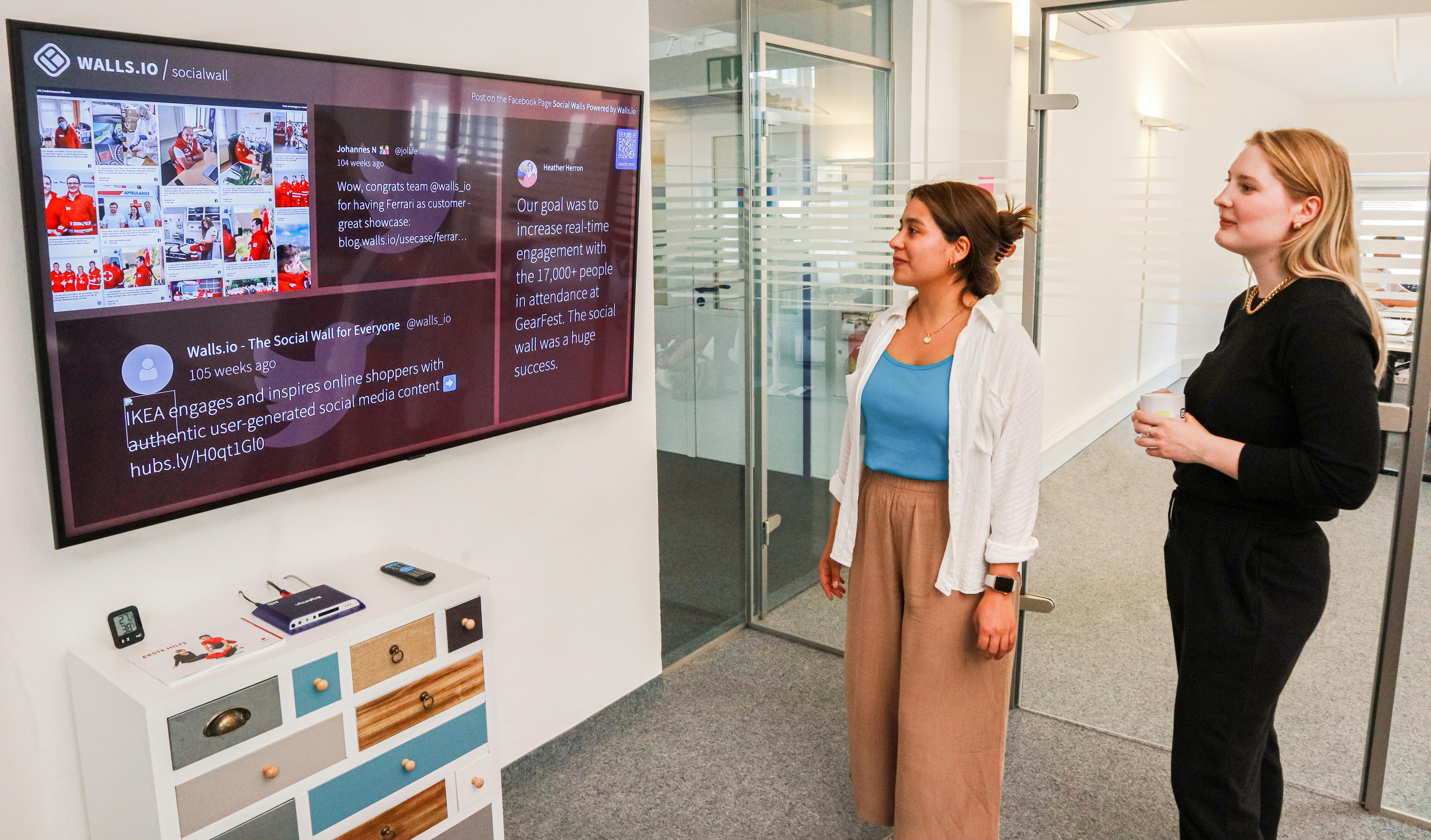In today’s increasingly digital and remote work environment, it’s not uncommon to experience anxiety related to our jobs. Whether it’s the fear of isolation, the pressure to maintain productivity, or the uncertainty of future deadlines, navigating remote work can sometimes feel overwhelming. But fear not, because there are effective strategies that can help you manage and alleviate these anxieties. By setting clear boundaries, practicing self-care, and fostering connections with colleagues, you’ll discover the best ways to tackle remote work-related anxiety and find a healthy balance between work and well-being.
Establish a Routine
Working remotely can blur the boundaries between work and personal life, making it crucial to establish a routine that helps you maintain a healthy work-life balance. Setting a consistent work schedule is essential to create a sense of stability and structure. By defining specific working hours, you can effectively manage your time and ensure you have dedicated periods for work and relaxation.
Alongside scheduling your work hours, it’s equally important to designate a dedicated workspace. Having a separate area solely for work can help you create a productive environment and minimize distractions. Find a quiet and well-lit space where you can focus without interruptions. This dedicated workspace will mentally prepare you for work and allow you to mentally switch off when you finish for the day.
Taking regular breaks is another crucial aspect of establishing a routine. Breaks are essential for recharging your mind, reducing stress, and improving focus. Make it a point to step away from your workstation and engage in activities that relax and rejuvenate you. Whether it’s going for a short walk, stretching, or simply grabbing a cup of tea, breaks are an opportunity to refresh and maintain productivity throughout the day.
Manage Time Effectively
Managing time effectively is fundamental to remote work success. Prioritizing tasks and setting deadlines will help you stay organized and ensure that important assignments are completed on time. Start each day by creating a to-do list and determine which tasks are the most critical. By focusing on these tasks first, you can tackle them with a clear mind and avoid unnecessary stress.
Time management techniques can be invaluable for working efficiently. One popular technique is the Pomodoro Technique, where you work for a set time period, such as 25 minutes, and then take a short break. This method allows you to maintain concentration during work periods and utilize breaks for relaxation and renewal. Experiment with different techniques to find the ones that work best for you and help you maintain productivity.
Distractions are a common challenge when working remotely, but they can be managed. Minimize distractions by creating a conducive work environment and setting boundaries with family members or housemates. Additionally, consider utilizing productivity tools or apps that block websites or apps that tend to distract you. With focus and discipline, you can overcome distractions and make the most of your working hours.

Maintain Work-Life Balance
Maintaining a healthy work-life balance is crucial for your overall well-being and productivity. One effective way to achieve this balance is by setting clear boundaries between work and personal life. Clearly define your working hours and communicate them to anyone who might interrupt or disturb you during that time. By doing so, you can create uninterrupted periods for work while preserving personal time for yourself and your loved ones.
Alongside setting boundaries, it’s important to schedule time for relaxation and hobbies. Engaging in activities you enjoy outside of work is essential for recharging your batteries and reducing stress. Whether it’s reading, spending time in nature, practicing a hobby, or simply relaxing with loved ones, prioritizing leisure time will help you maintain a healthy work-life balance and prevent burnout.
Practicing self-care is equally important when striving for work-life balance. Take care of your physical and mental health by engaging in activities that nurture your well-being. This may include regular exercise, getting enough sleep, eating nutritious meals, and practicing stress-management techniques, such as deep breathing exercises or meditation. Remember, taking care of yourself is a fundamental aspect of maintaining a healthy work-life balance.
Stay Connected
Working remotely can sometimes make you feel isolated, but staying connected with colleagues and managers can help alleviate that feeling. Regular communication with your team is essential for collaboration and maintaining a sense of belonging. Utilize communication tools like email, instant messaging, or video conferencing platforms to stay connected and updated on projects and tasks.
Participating in virtual team activities is a great way to foster a sense of camaraderie and maintain team spirit. Organize virtual team-building activities or casual online hangouts to socialize with your colleagues outside of work-related conversations. This will not only strengthen professional relationships but also create a more enjoyable and engaging remote work experience.
In addition to connecting with your immediate team, consider joining professional online communities relevant to your industry or interests. These communities are valuable platforms for networking, sharing knowledge, and staying updated with industry trends. Engaging in discussions, asking questions, and contributing your expertise will not only expand your professional network but also provide opportunities for learning and growth.

Address Communication Challenges
Clear and effective communication is essential when working remotely, and addressing communication challenges proactively is key to success. Clarifying expectations and responsibilities with your colleagues and managers is critical to avoid misunderstandings and ensure everyone is on the same page. Regularly check in with your team to discuss project progress, share updates, and address any concerns or questions.
Written communication plays a significant role in remote work, so it’s important to use clear and concise language. Be mindful of the tone and structure of your emails, messages, and other written forms of communication. Remember to keep your messages professional, concise, and to the point to minimize confusion and promote effective collaboration.
For sensitive conversations or complex discussions, leverage video calls to enhance communication. Non-verbal cues, facial expressions, and body language play an important role in understanding and conveying information. Video calls allow for a more personal and interactive experience, enhancing understanding and reducing the chances of miscommunication.
Manage Task Overload
Remote work can sometimes lead to task overload, especially when faced with multiple deadlines or competing priorities. To manage this effectively, consider breaking down tasks into smaller, manageable chunks. Breaking tasks into smaller parts helps in maintaining focus, staying organized, and preventing overwhelm. This approach allows you to tackle each portion of the task systematically, leading to better productivity and less stress.
If possible, delegate tasks to colleagues or team members. Delegation not only helps distribute the workload but also promotes collaboration and empowers others to contribute their skills and expertise. Assess the strengths and capabilities of your team members and allocate tasks accordingly. Delegating tasks not only lightens your workload but also encourages a sense of shared responsibility within the team.
When faced with multiple tasks, it’s crucial to prioritize and focus on one task at a time. Multitasking can lead to decreased productivity and increased stress. By focusing on one task at a time, you can give it your full attention and effort, resulting in higher quality work. Prioritization helps you allocate your time and energy efficiently, ensuring that important tasks are completed first.

Practice Stress Management
Remote work-related anxiety can sometimes become overwhelming, but practicing stress management techniques can help you cope and maintain a positive mindset. Engaging in relaxation techniques like deep breathing exercises, meditation, or mindfulness can help reduce stress and promote mental well-being. Take short breaks throughout the day to practice these techniques and give yourself moments of calm and clarity.
Exercise is a powerful stress-reduction tool. Regular physical activity not only improves your physical health but also boosts mood and relieves anxiety. Find a form of exercise that you enjoy, whether it’s yoga, running, dancing, or any other activity, and make it a part of your routine. Even short bursts of exercise can have a significant impact on reducing stress levels.
Seeking support from friends, family, or professionals is important when dealing with stress and anxiety. Reach out to your loved ones and share your concerns, as talking about your feelings can often provide relief and perspective. If necessary, consider seeking professional help, such as therapy or counseling, to address and manage your anxiety effectively.
Set Realistic Goals
Setting realistic goals is instrumental in maintaining motivation and a sense of accomplishment. Define achievable objectives that align with your responsibilities and available resources. Setting goals that are within reach, yet challenging, helps you stay focused and motivated, as you know they are attainable with effort and dedication.
Long-term goals can sometimes feel overwhelming, so breaking them down into shorter milestones can make them more manageable. Create a roadmap with specific milestones and deadlines for each goal. Celebrate when you achieve these milestones, as recognizing your progress and small victories along the way can boost your confidence and motivation.
Seek Feedback and Recognition
Regularly seeking feedback from your superiors is essential for personal and professional growth. Check in with your managers or supervisors to gain insight into your performance, areas for improvement, and opportunities for growth. Constructive feedback helps you understand expectations, learn from your experiences, and continually enhance your skills and abilities.
Recognition for your achievements is equally important to maintain motivation and job satisfaction. Don’t hesitate to request recognition when you accomplish something noteworthy. Share your successes with your team, managers, or even your colleagues. Recognizing your achievements not only boosts your morale but also highlights your contributions within the organization.
In addition to seeking feedback and recognition, make it a point to offer feedback and appreciation to your colleagues. Recognizing and acknowledging the efforts and achievements of your team members fosters a positive and supportive work environment. Take the time to express your gratitude and offer constructive feedback when appropriate, as it strengthens professional relationships and improves collaboration.
Continuous Learning and Growth
To thrive in a remote work environment, continuous learning and growth are essential. Pursue professional development opportunities both within and outside your organization. Attend webinars, workshops, or conferences relevant to your industry to stay updated with the latest trends and advancements. Continuously expanding your knowledge and skills helps you adapt to changing professional landscapes and opens up new opportunities.
Online courses and certifications are valuable resources for acquiring new skills or enhancing existing ones. Take advantage of e-learning platforms to enroll in courses that align with your career goals and interests. These courses allow you to learn at your own pace, making them convenient for remote workers seeking to upskill or explore new areas of expertise.
Always stay updated with industry trends and news. Follow industry publications, blogs, or newsletters to stay informed about developments within your field of work. Actively engage in discussions around emerging trends and share your insights with colleagues and online professional communities. Staying abreast of industry changes positions you as a knowledgeable professional and enhances your professional growth prospects.
In conclusion, handling remote work-related anxiety requires establishing a routine, managing time effectively, maintaining a work-life balance, staying connected, addressing communication challenges, managing task overload, practicing stress management, setting realistic goals, seeking feedback and recognition, and pursuing continuous learning and growth. By implementing these strategies, you can navigate remote work with confidence, productivity, and a positive mindset.

Hello, I’m Kelly Joseph, the author behind Optimum Mindset for an Optimal Lifestyle. Welcome to our website, where we dive deep into the world of mindfulness techniques and productivity hacks. With a mission to help you achieve a more fulfilled life, we offer a comprehensive guide to mastering the art of an optimum mindset. I am passionate about enhancing mental resilience, fostering positivity, and unlocking the potential for goal achievement. This site is a treasure trove of practical tips and strategies that will empower you to live life to the fullest. Join me on this journey of self-discovery and personal growth.

